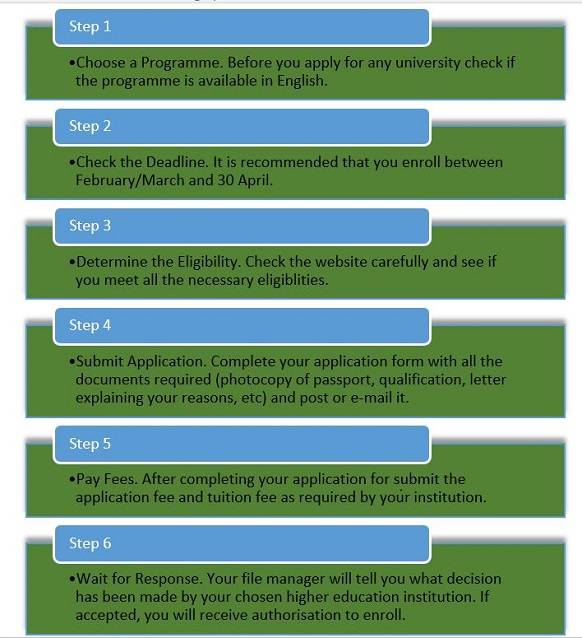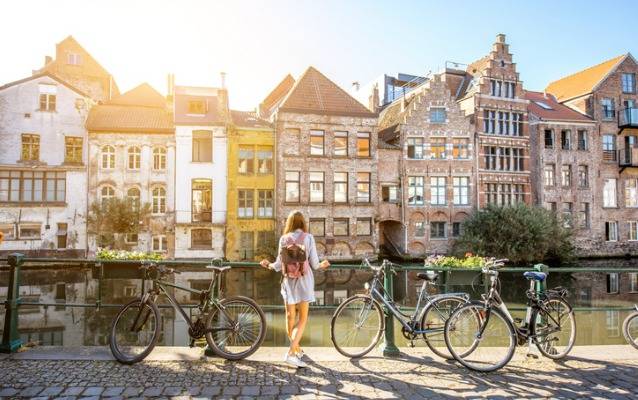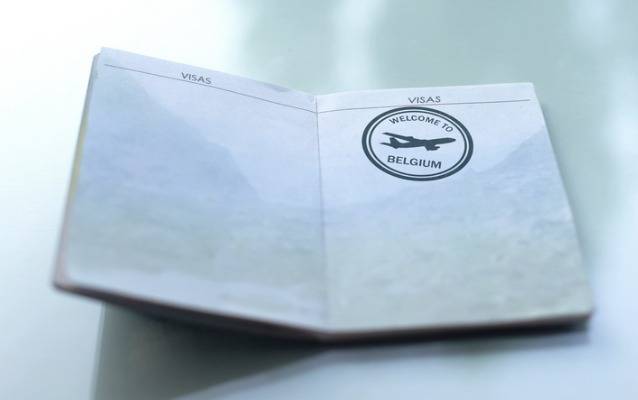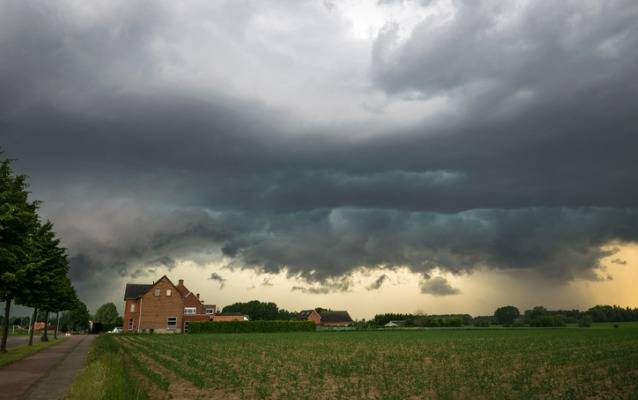Student Guide to Study in Belgium
Study in Belgium
Belgium is the heart of Europe situated in Western Europe bordering the Netherlands, Germany, France, and Luxembourg. This small cosmopolitan nation played an important role in the formation of the European Union. It is one of the founding members and its capital, Brussels, is the headquarters of the European Union. Belgium is increasingly becoming a hot spot for international students studying abroad. Belgium universities are among the top universities in world university rankings by Times Higher Education (THE), Quacquarelli Symonds (QS) and Academic Ranking of World Universities (ARWU). The country is one of the most sought-after destinations in Europe for international students.
Almost 20 % of the international students and 40% of foreign PhD students coming to Europe choose Belgium every year for their studies. Over 55% of all Belgian scientific publications are co-published with international researchers besides almost 20% of all academic or scientific staff in Belgian universities are of foreign origin. Numerous courses are delivered in English, Dutch, Spanish, and German.
Country Highlights
| Total Population (2022) |
11.58 Million (approx.) |
| International Student Population |
300,000+ |
| Language Spoken |
Dutch, French, German and English |
| Capital |
Brussels |
| Currency |
Euro (€) |
| Area |
30,688 km2 |
Top Rank Universities
Belgium is a federal state composed of three communities and three regions. Communities in Belgium are divided based on their language; the Dutch-speaking community, the French-speaking community, and the German-speaking community. Three regions as mentioned above are; the Flemish Region, the Walloon Region, and the Brussels-Capital Region.
Predict your IELTS, TOEFL, and PTE in just 4 steps!
The Dutch-speaking part of Belgium is known as Flanders, and the French-speaking part of Belgium is known as Wallonia. Each of these regions has its own parliament and education ministries. Below, we list the top universities in Belgium as per the leading world university ranking magazines.
| University/College |
QS 2024 Ranking |
THE Ranking 2024 |
|---|---|---|
| KU Leuven |
#61 |
#45 |
| #159 |
#115 |
|
| #180 |
#168 |
|
| Universite Libre de Bruxelles |
#189 |
#201-250 |
| #259 |
#201-250 |
|
| University of Antwerp |
#248 |
#161 |
| #551 |
#351–400 |
|
| #421 |
#301–350 |
|
| University of Mons |
#691-700 |
#501-600 |
Universities in Flanders
The Flemish higher education system is a binary system. There are 18 publicly funded higher education institutions in the Flanders region. Among them, 5 are universities, of which the oldest dates back to 1425, and 13 small and medium-sized university colleges, also known as universities of applied sciences and arts.
Universities in Wallonia
Belgium is very geographically and culturally diverse. French-speaking region; Wallonia welcomes more than 300,000 students every year, of whom more than 20% are international students. French-speaking Belgium is an ideal destination for all the international students coming to Europe to pursue higher education. In the French-speaking region, three types of higher institutions exist; universities, university colleges, and schools of arts. There are 6 universities, 19 university colleges, and 16 schools of arts in the French-speaking region.
Education System of Belgium
Belgium is a federal state, mainly with three communities and three regions. In Belgium, education is the responsibility of the Flemish, French and German-speaking communities. The names of the three regional institutions are borrowed from the name of the territory they represent. Therefore, we refer to, (from north to south) the Flemish region, the Brussels-Capital region and the Walloon region.
Belgian scientific research is recognized worldwide and it is confirmed by its many Nobel Prize winners; 4 Nobel for medicine, 3 Nobel for peace, 1 Nobel for literature, 1 Nobel for Chemistry, and 1 Nobel for physics.
Bachelor courses in Belgium take 3 years to complete. Meanwhile, master’s courses take 1-2 years and a PhD takes anywhere between 3-4 years for completion.
Flemish Higher Education System
The Flemish higher education system is a binary system with 18 publicly funded institutions of higher education. Among them are 5 universities, of which the oldest dates back to 1425, and 13 small and medium-sized university colleges, also known as universities of applied science (and arts). There are private universities as well, you can apply to them as well. Now we will understand the terminologies, classification and definitions of the programs, degrees and universities in the Flemish region.
- Universities: In Flemish's education system, Universities are research-intensive institutions, offering academic bachelor’s degrees, master’s degrees, advanced master’s degrees, PhDs and postgraduate certificates.
- Universities of Applied Sciences (and Arts): In Flanders the universities of applied sciences (and Arts) are higher education institutions with a strong focus on practice-based education, offering associate degrees, professional bachelor’s degrees, advanced bachelor’s degrees and postgraduate certificates.
- The schools of arts are integrated with the universities of applied sciences and arts. Schools of arts offer academic bachelor’s degrees, master’s degrees, advanced master’s degrees, professional bachelor’s degrees, and PhDs.
Degree Programmes
In this section, we will know the type of degrees and courses offered in the Flemish region and how many ECTS (European Credit Transfer System) credits are required to complete that degree.
- Associate Degree: It is a practice-based programme between secondary education and a professional bachelor’s degree. Flemish universities of applied sciences (and arts) offer associate degrees only in Dutch. 90 to 120 ECTS credits are required to complete this degree.
- Professional Bachelor’s Degree: It is a bachelor’s degree combining general knowledge with practical competencies, including compulsory internships. For a master’s degree at a Flemish university, a bridging programme is required. 180 ECTS credits are required to complete this degree.
- Academic Bachelor’s Degree: It is a bachelor’s degree offered at a university, a school of arts or the Antwerp Maritime Academy. It prepares you for a master’s degree with a strong focus on theoretical knowledge. 180 ECTS credits are required to complete this degree.
- Advanced Bachelor’s Degree: It is offered at a university of applied sciences. 60 ECTS credits are required to complete this degree.
- Master’s Degree: It is a degree with a focus on advanced scientific or artistic knowledge and research competences. In Flemish universities, most of the master’s programmes are taught in English. 60 to 120 ECTS credits are required to complete this degree.
- Advanced Master’s Degree: It provides specialized training, linked with top research areas of the home university and is especially for students who already earned an initial master’s degree. 60 to 120 ECTS credits are required to complete this degree.
- PhD: Each Flemish university has several doctoral schools offering PhD programmes preparing PhD graduates for a career in both academia and beyond.
Other Programmes
- Postgraduate Certificate: A postgraduate certificate offers specialized training in a very specific area. It does not result in a diploma. Postgraduate certificates require at least 20 ECTS credits to complet the programme.
- Summer Courses: These are short courses of one or two weeks organized during the summer holiday.
- Exchange Programmes: These procompletegrammes are for you when you come on credit mobility to Flanders or Brussels, while you stay enrolled in your home institution. All 18 Flemish Higher Education Institutions have a wide range of partner institutions around the world.
Higher Education Institutions in Flemish Region
There are 18 public institutions of higher education in the Flemish region. Among them are 5 universities and 13 universities of applied sciences (and arts) In the Flemish region. Below, we list all the public higher education institutions in Flemish region:
Universities:
- Ghent University
- KU Leuven
- Hasselt University
- University of Antwerp
- Vrije Universiteit Brussel
Universities of Applied Sciences (and Arts):
- Antwerp Maritime Academy
- AP University of Applied Sciences and Arts Antwerp
- Artevelde University of Applied Sciences
- Erasmus Hogeschool Brussel
- HOGHENT
- Howest University of Applied Sciences
- KdG University of Applied Sciences and Arts
- Luca School of Arts
- Odisee University of Applied Sciences
- PXL University of Applied Sciences and Arts
- Thomas More University of Applied Sciences
- UC Leuven Limburg
- Vives University of Applied Sciences
Wallonia Higher Education System
French-speaking region in Belgium is known as the “Wallonia-Brussels Federation”. French-speaking Belgium is at the heart of Europe and it offers the best quality of education. Courses are delivered in English, Dutch, Spanish and German languages. The higher education system in French-speaking Belgium is varied, diversified and accessible. Universities, University Colleges and Schools of Arts offer courses and degree programs from the Bachelor level to the PhD level.
Although Wallonia and Flemish regions are in the same country yet their education systems are different from each other. In this section, we will understand terminologies, types of higher education institutions, definitions of programs/courses and minimum credits required for each programme.
Universities
The French-speaking universities are spread all over the Wallonia-Brussels Federation. The options are divided up into three main areas of knowledge:
- Science and Technology
- Human Sciences
- Health Sciences
The French-speaking universities of Belgium offer long-term education programmes made up of three cycles:
- 1st cycle that takes the student up to “transitional” Bachelor’s degree level. The main purpose of this is to prepare students for the master’s degree that follows. 180 ECTS credits are required to complete this degree.
- 2nd cycle leading to a Master’s degree. 120 ECTS credits are required for this degree.
- 3rd cycle studies are for PhDs and work preparing a PhD thesis
A one-year “advanced” Master’s course (60 ECTS credits) is also offered by some French-speaking Belgian universities.
Six French-speaking public universities recognized and subsidized by the Wallonia-Brussels Federation are:
- Universite Catholique de Louvain (UCLouvaine)
- Universite libre de Bruxelles (ULB)
- Universite de Liege (ULiege)
- Universite de Mons
- Universite de Namur
- Universite Saint-Louis-Bruxelles
University Colleges
The French-speaking university colleges of Belgium impart practical and professional education, liaising closely with applied research, universities and socio-professional environments. Theoretical and conceptual aspects are all part of the programmes and courses offered by university colleges with a heavy focus on internships, which are mandatory.
The French-speaking Belgian university colleges offer you multiple education offers such as:
- Bachelor’s degree: Studies that are organised as a single cycle, lead to a professional-type Bachelor’s degree. 180 tp 240 ECTS credits are required to complete this degree.
- Transitional Bachelor’s degree: Studies that are organised into two-cycle, lead to a transitional Bachelor’s degree. In 1st cycle, 180 ECTS credits are required. Meanwhile, for master’s, i.e., 2nd cycle, 60 to 120 ECTS credits are required.
- Advanced Bachelor’s degree: Advanced bachelor’s degree requires at least 60 ECTS credits. This degree can be obtained after having successfully completed an initial Bachelor’s degree or Master’s degree.
There are 19 French-speaking university colleges in Belgium. All these university colleges are recognized and subsidized by the Wallonia-Brussels Federation.
These publicly funded University Colleges are:
- Haute Ecole Albert Jacquard
- Haute Ecole Bruxelles-Brabant
- Haute Ecole Charlemagne
- Haute Ecole EPHEC
- Haute Ecole Francisco Ferrer
- Haute Ecole Galilee
- Haute Ecole ICHEC-ECAM-ISFSC
- Haute Ecole en Hainaut
- Haute Ecole Leonard de Vinci
- Haute Ecole libre de Bruxelles –ilya Prigogine
- Haute Ecole libre Mosane
- Haute Ecole Louvain en Hainaut
- Haute Ecole Lucia de Brouckere
- Haute Ecole de Namur-Liege-Luxembourg
- Haute Ecole provinviale de Hainaut-Condorcet
- Haute Ecole de la Province de Liege
- Haute Ecole de la Province de Namur
- Haute Ecole Robert Schuman
- Haute Ecole de la Ville de Liege
School of Arts
The School of Arts in French-speaking Belgium is internationally recognized for its education in artistic techniques. The school of arts of the Wallonia-Brussels Federation educate all Belgian and foreign students looking to pursue visual arts, theatre and the arts of entertainment and music.
Three types of education are offered by the school of arts in French-speaking Belgium:
- Professional-type Bachelor’s degree: Short-term studies that are organized as a single cycle lead to the professional-type Bachelor’s degree. 1st cycle requires 180 to 240 ECTS credits.
- Transitional Bachelor’s degree: Long-term studies that are organized into two cycles lead to a transitional bachelor’s degree. 1st cycle requires 180 ECTS credits. Meanwhile, 2nd cycle requires 60 to 120 ECTS credits.
- PhD: In partnership with research into the arts and subjects taught in a 3rd cycle organized by a university leads to a PhD.
There are 16 schools of arts in French-speaking Belgium. All the schools of arts are public, recognized and subsidized by the Wallonia-Brussels Federation.
These Schools of Arts are:
- Academie des Beaux-Arts de la Ville de Tournai
- Academie royale des Beaux-Arts de la Ville de Bruxelles – Ecole superieure des Arts
- Arts2
- Conservatoire royal de Bruxelles
- Conservatoire royal de Liege
- Ecole Nationale superieure des Arts visuels de La Cambre
- Ecole superieure des Arts de Le 75
- Ecole superieure des Arts – Ecole de Recherche graphique
- Ecole superieure des Arts de la Ville de Liege
- Ecole superieure des Arts du Crique
- Ecole superieure des Arts Instiut Saint – Luc a Tournai
- Ecole superieure des Arts Saint – Luc de Bruxelles
- Ecole superieure des Arts Saint – Luc de Liege
- Institut des Arts de Diffusion
- Institut national superieur des Arts du Spectacle et des Techniques de Diffusion
- Instiut superieue de Musique et de Pedagogie
Entry Requirements
It is important that you take a good look at the website of the higher education of your choice, before applying for a study program there. The admission requirements vary by region and particular university. It is important that you understand the education system and the duration of courses.
In the Flemish higher education admissions to bachelor’s studies are granted on the basis of a secondary education diploma that gives access to university studies in the diploma-awarding country.
Entry examinations are mandatory for medicine and dentistry (taught in Dutch only) and for the school of Arts. You do not need to register for a bachelor’s or master’s programme if you have obtained a diploma issued within the Flemish higher education institutions, already. You are not required to submit an online application and you can start your registration directly.
Calibration Tests
Calibration Tests are organized by various study programmes. These tests give you an idea of the level of the study programme and whether you have sufficient prior knowledge to successfully complete the programme. Participation in the calibration test is mandatory for some programmes. Students can start the programme even if they do not pass it. A calibration test is never totally binding.
Language Test
At the bachelor’s level, most of the courses are taught in Dutch only some programmes are taught in English. However, at the master’s level, most of the postgraduate courses are taught mainly in English. Therefore, it becomes necessary to pass the language test for international students.
| Language |
Minimum Requirement |
|---|---|
| English |
Level B2 is required for most of the Bachelor’s and Master’s programmes taught in English |
| TOEFL (paper based) TOEFL (interbet based) IELTS (overall) |
510-559 72-94 6.0 |
| Dutch |
B2 level for Bachelor’s and C1 level for specific programmes |
Read: Study in Belgium Without IELTS
Additional Document Requirement
The entry requirements mentioned above are general requirements. Depending upon the study programme, some additional and specific documents may be needed. In the Flemish region higher education, each institution is responsible for its own admissions. Please take a look at the website of your choice of university in Belgium.
Wallonia Region Universities
The academic calendar of universities in French-speaking Belgium generacloseslose their enrolments at the end of April before the start of the school year. It is recommended to students that they apply in February/March.
Bachelor’s Degree Admission and Enrollment Requirements
To study Bachelor’s degree courses in the Wallonia-Brussels Federation, international students must have a diploma granting access to the cycle requested and must complete the selection procedure envisaged for certain paths.
Admission Test
In addition to the recognition of a diploma, the school of arts require students to take an admission test, which aims to demonstrate that they fulfil the prerequisites. This admission test is only for enrolling in first-year Bachelor courses. The tests generally take place between May 1 and June 11, as well as between June 25 and September 21, over a period of up to two weeks.
Note: Artistic and creative courses (computer graphics, fabric arts, photography and film techniques etc) organized by certain university colleges are accessible without an admission test.
Master’s Degree Admission and Enrollment Requirements
Some schools of arts require candidates to take an admission test or interview. For more information please visit the website of the school of arts of your choice.
Language
Generally, international students need to take a B2-level test in the language used for teaching. However, the higher education institution you have chosen may instead ask you to provide proof of passing the standardized test. These tests are:
- DALF, DELF, TEF or TCF, if the language used to teach is French
- TOEFL or IELTS, if the language used to teach is English
| Tests |
Score B2 |
|---|---|
| 5.5 – 6.5 |
|
| TOEFL (paper) |
567 - 633 |
| 72 – 95 |
|
| 785 – 940 |
|
| Cambridge FCE (First Certificate in English) |
>160 |
| Cambridge CAE (Certificate of Advanced English) |
>180 |
PhD Admissions and Enrollment Requirements
If the international student comes from outside the European Union, you will need to meet the following conditions to study for a PhD in the Wallonia – Brussels Federation.
- Masters’ degree obtained after 5 years of Studies (300 ECTS credits)
- Sufficient financial resources to fund your studies
- Sufficiently good result in prior studies
- Master’s degree from university higher education teaching of at least 300 ECTS credits
- Average mark of 14/20
- Thesis proposal and written agreement from a supervisor
Language
French is the official language of the Wallonia-Brussels Federation. However, English is also the language of communication in Wallonia. The ability to speak French is not required for a PhD admission in French-speaking Belgium as the thesis can be written in English. However, every institution is free to set its own admission criteria. therefore it is recommended to check the website of the university of your choice.
A non-European national must meet certain academic conditions to be able to submit their file to the admission committees and study for a Master’s degree in French-speaking Belgium. These conditions differ from one institution to the next.
Application Checklist
The following documents are required for admissions:
- ID/Passport
- Passport photo (mandatory for scholarship candidates)
- Secondary/Higher School Diploma
- Curriculum Vitae (mandatory)
- English language proficiency
- GRE certificate (mandatory)
- Motivation Letter (mandatory)
- Recommendation Letter (at least two)
- Higher Education Diplomas
- Higher Education Transcripts of Records
- Official translation of Diplomas and Transcripts of Records
- Portfolio
- VLIR-UOS scholarship application form
Admission Process
In this section, we will understand the admission process stepwise.
Higher education is highly valued in all the societies and communities in Belgium. Therefore, the Belgian government highly subsidises all bachelor’s and master’s courses. Belgium offers an excellent price-to-quality ratio. In this section, we will provide some general guidelines for tuition fees in the Flemish and Wallonia region. However, to check the specific tuition fee for a particular programme in a particular university, please check it website.
Tuition Fee in Flemish Region
Tuition fee for a full-time degree programme of 60 ECTS credits for the academic year 2022/23 is:
- For EU and EEA nationals; €979.60
- For Non-EU/EEA national; €979.60 – €8,000 depending on the programme
Students who pay regular tuition fenationalses will also have to register for a credit contract or an exam contract:
- Credit contract; €253.60 fixed fee + €12.10 per study credit (ECTS)
- Exam contract; €115.80 fixed fee + €4.40 per study credit (ECTS)
For more specific information please visit the website of your chosen higher education institution.
Tuition Fee in Wallonia Region
The cost of study in the Wallonia-Brussels Federation ranges between €8,000 to €12,000 per year. To make sure that high tuition fee does not become an obstacle for young men and women wishing to pursue higher education, the government subsidizes the tuition fees.
Fees for Universities
- Students from Wallonia-Brussels Federation or European Union Member State nationals pay maximum annual tuition fees of €835.
- Students from outside the European Union will need to pay specific registration fees, for which the maximum annual amount is set as €4175.
Note: For certain advanced Master’s degree and MBAs the amount of tuition fees may differ. Please check your university’s website.
Fees for University Colleges and School of Arts
The amount of tuition fees in the university colleges and schools or arts depends on the type of studies, the year concerned and the student’s status:
- For students of Wallonia-Brussels or EU member state nationals:
- For short study courses, the maximum annual tuition fees will be €175.01 per year, and €227.24 for graduation year.
- For long study courses, the maximum annual tuition fees will be €350.03 per year, and €454.47 for graduation year.
- Students who are non-EU nationals will be required to pay:
- For single–cycle higher education; €992 per year
- For education in two cycles;
- 1st cycle; €1,487 per year of study
- 2nd cycle; €1,984 per year of study
Housing and Accommodation
In Flanders and Wallonia, there is a limited number of accommodations available for students on campus. Therefore, students are advised to check their housing options before coming to university. Most of the students live in private student houses throughout the city. There are plenty of agencies which help international students to find a suitable room within the student’s budget.
Before you arrive in Belgium it is advised to reserve a room in advance in a university guesthouse or hostel for a few nights to a week, because at the start of semester, hostels fill up easily.
The average cost of living in Belgium for a student ranges between €800 to €1,000 per month. This includes:
- Accommodation
- Food and Meals
- Study materials
- Phone and internet
- Insurance
- Local transportation
- Personal activities
Most institutions have restaurants, sports facilities and other amenities that offer student discounts.
Student Visa for Belgium
Conditions and documents required for a visa depending on the length of your stay, nationality and the purpose of your stay. Students who intend to stay longer than 90 days should not enter Belgium on a tourist visa.
Currently, European Union, Norway, Iceland, Liechtenstein, Monaco and Swiss nationals do not require a visa to enter Belgium. Students have to initiate their visa application via the Belgian embassy or consulate in their country of residence. It is advised to start your visa application process as early as possible. The normal procedure can easily take up to six to eight weeks.
Types of Visas
Short–stay visa (type C): This visa is known as a Schengen visa and holder of this visa can travel between and stay freely in all of the Schengen area member countries. this visa is applicable to a short stay of maximum 90 days. Students holding a residence card issued by another Schengen country, may enter and stay in Belgium without a visa for maximum 90 days.
Long–stay visa (type D): This type of visa is called Authorization for Provisional Sojourn. It allows the holder of this visa to enter Belgium for a period longer than 90 days.
Visa Requirements
To apply for a long-stay visa (type D) you need the following documents:
- Admission letter
- Valid passport
- Proof of solvency
- Certificate of good conduct
- Medical certificate
- Proof of payment of the supplementary administrative fee
Note: The minimal amount required as proof of solvency for 2022/23 is €730.00 per month, but this minimal amount may increase.
Register at the City Hall
It is mandatory for EEA and non-EEA students to register at the town or city hall of their place of residence in Belgium after their arrival in Belgium as soon as possible.
Documents required to submit at city hall get registration certificate are:
- Passport or identity card
- Certificate of registration at higher education institution
- Proof of health insurance coverage
- Recent passport photographs
- A copy of student accommodation
- Visa with long stay for Belgium
- Proof of solvency
Open and Diverse Society
Belgium universities boast a high level of diversity on and off campus. Brussels is the second most diverse city in the world, after Dubai. People of Belgium are open-minded and interested in meeting people of different backgrounds. English is widely spoken among the three official languages; Dutch, French and German. Belgium welcomes more and more international students, which results in an increasingly multicultural and international campus environment.
Scholarships and Financial Aid
Scholarships and financial aids help you to cover the cost related to a study or research period in Belgian universities. Some scholarship programmes are sponsored by the university, others by external institutions. The ministry of education of respective regions award scholarships to outstanding students from around the world.
Scholarships available for Flemish region students:
- Erasmus Mundus Joint Masters Scholarships
- VLIR-UOS Scholarships
- Funding from Flemish Higher Education Institutions
Scholarships available for Wallonia region students:
- ULYSSE Incentive Grant for Mobility in Scientific Research
- Agence Universitarire de la Francophonie grants
- Wallonia-Brussels International Excellence Grants Programme
Weather in Belgium
Weather is influenced by the Atlantic Ocean due to which climate of Belgium is cool and wet, especially on the coast and the plain. South-eastern regions known as Ardennes are located at higher altitudes as well as at a greater distance from the sea. The climate of Ardennes is more continental and more unstable in summer.
The Seasons
- Winter: The winters are cold but not freezing. Rains are frequent and sunshine is rare in February. In the Ardennes, the winter is colder because of the altitude and greater distance from the sea. Weather in Belgium varies depending on meteorological conditions.
- Summer: The summer season is very cool on the coast in July and August. Atlantic fronts bring cloudy and rainy days to Belgium even in this season. In the mid-summer (July-August), the sea in Belgium is cold.
- Spring & Autumn: Spring and autumn seasons are cool and cloudy seasons. It is cold in march and in the first half of April. Spring is not as rainy as autumn and it is the driest season of the year. Especially on the coast autumn can be windy and grey.
| Season |
Temperature Range |
|---|---|
| Winter |
0 - 4 |
| Summer |
18.5 - 22 |
| Spring & Autumn |
8 - 10 |
Overall, Belgium is one of the most sought-after destinations for international students. It has a robust economy and offers a lot of opportunities for international students to work after graduation. Students coming to Belgium with limited resources will find many part-time work options to cover their expenses. Therefore, for anyone thinking of going to Europe for higher education, Belgium should be in their list of top 3 destinations.
Study in Belgium FAQs
Q. What are the reasons to study in Belgium for Indian students?
A. There are multiple advantages to studying at a university in Belgium for international students. We have mentioned some popular reasons why Indian students should consider the universities of Belgium for higher education:
- World-Class Universities
- Variety of study programmes
- Belgium is more affordable than other European countries for education
- No language barrier as universities offer programs entirely in English
- A Belgian degree is recognized throughout the European Union
Q. What are the top universities in Belgium for international studnts?
Here is the list of top-ranked Belgian universities that are listed in QS ranking 2024:
- KU Leuven
- Ghent University
- Catholic University of Leuven
- Universite Libre de Bruxelles
- Vrije Universiteit Brussel (VUB)
Q. What is the average cost of studying in Belgium for Indian students?
A. The cost of education in Belgium for international students is not the same for every course. The tuition fee ranges between INR 9,000 to INR 16.00 Lakhs for UG and PG courses in the universities. This amount does not include cost of living in Belgium.
Q: Which is better: an MSc in Artificial Intelligence at KU Leuven (Belgium) or a MSc in Data Science at Ludwig Maximilian University?

Raj Vimal has experience of 7+ years in SEO Content Writing, which includes 5+ years in the Ed-Tech industry. He has written articles about studying abroad, especially in the USA, UK, and other English-speaking coun... Read Full Bio

Chandra has been mentoring students for the past seven years and has expertise in overseas counseling for those applying to Sweden, Germany, France, and Ireland. He is a people person and enjoys interacting with peo... Read Full Bio












KU Leuven is a popular university in Belgium and Ludwig Maximilians University Munich is a popular university in Germany. Mentioned below is the comparision between these two university for MSc in Artificial Intelligence at KU Leuven (Belgium) and MSc in Data Science program at LMU Munich:
Therefore, it is better to study MSc in Data Science at Ludwig Maximilian University than MSc in Artificial Intelligence at KU Leuven.